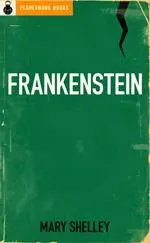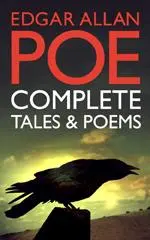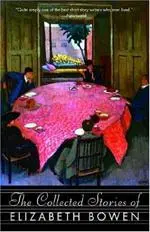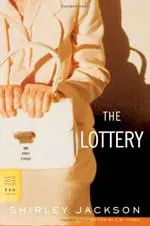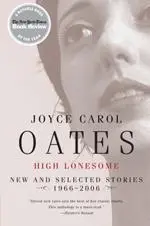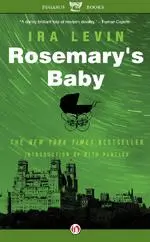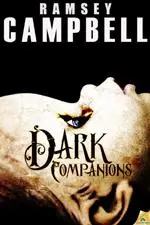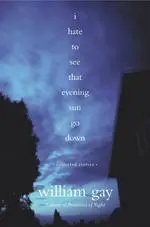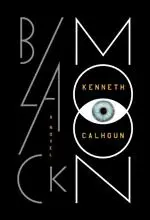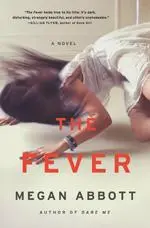I think for genre definitions, we really need look no further than Richard Thomas, a short-story-publishing beast, frequent instructor here at LitReactor and author of the ongoing nuts-and-bolts column Storyville (also featured on this website). In an entry from a little over a year ago, Thomas tackles the label "literary fiction" (or lit-fic) by deconstructing Wikipedia's definition of the genre, which asserts that lit-fic must bear significant "literary merit." He writes:
What is literary merit? Well, it’s a certain aesthetic value. It should stand the test of time, it should have realistic and layered characters and complex emotions, and it should be concerned with the truth.
Thomas further shapes his definition, stating that lit-fic is "introspective, examining the thoughts and feelings of its main characters" and revealing "layers of experience, emotion, thought, and behavior." The prose is "lyrical, elegant, and layered," and in general works under the lit-fic banner will ponder heavy-duty existential questions like "Why are we here?" He also asserts that, among other speculative considerations, lit-fic is not "graphic horror, werewolves and vampires, demons and ghosts"—i.e., lit-fic, for the most part, is not horror.
Now, Thomas is not demonstrating genre snobbery by making this statement. If you've ever read his stuff (and you should, because it's quite good), you know this writer is no stranger to speculative or genre conventions. He even acknowledges in the column that there are exceptions to the rule, namely William Gay's superb short story "The Paperhanger" and the works of Edgar Allan Poe. But there does seem to be a critical divide between the "genre of fear" and what is typically acknowledged as literature, as evidenced by Stuart Kelly's Guardian Book Blog post, in which he notes that while science fiction and fantasy writers like Iain M. Banks, China Miéville, Jeff VanderMeer and Kelly Link have "upped the stakes" of speculative fiction, horror still languishes in a kind of "literary hell."
Is this a problem inherent to horror, or do certain critics share a proverbial stick up the ass? As with most things, a little from column A and a little from column B applies here. Snobbery indeed exists—take this supposed appreciation of genre literature from The New Yorker, which still manages to "other" and depreciate genre-fic in favor of lit-fic. Conversely, there is no shortage of cliché-ridden horror trash that fails to even entertain with its badness (unlike other so-called "trashy" titles that are tons of fun).
As a means of proving the stuck-ups wrong and showing would-be writers how it's done, I submit to you this chronological list of ten novels and short stories from authors typically embraced within lit-fic's arms that effectively utilize horror elements. Each title does so by dealing with dark subject matter, by featuring entities of a sinister and often supernatural nature, and by maintaining a sense of dread and terror; at the same time, these stories effectively meet the lit-fic criteria as established by Richard Thomas: complex characters, existential questions (which are often tied directly to the horrific fears on display), and elegant prose.
![]() 1. 'Frankenstein, Or The Modern Prometheus' by Mary Shelley
1. 'Frankenstein, Or The Modern Prometheus' by Mary Shelley
How could this novel not appear on the list? It's widely considered to be a classic piece of literature by every professor I've encountered over the years, and it's also one of three novels that form the genesis of modern horror (the other two being Bram Stoker's Dracula and Robert Louis Stevenson's The Strange Case of Dr. Jekyll and Mr. Hyde—see Stephen King's Danse Macabre for a broader discussion of this).
Shelley poses a very basic question with her novel: just because we have the technology and skill to reach certain scientific achievements, does that necessarily mean we should reach them? But as the subtitle (a literary allusion to Greek mythology) suggests, the author offers even bigger queries woven into her text, namely the idea that creators of an awesome power must suffer for their genius. Just as Prometheus, who deceived Zeus in creating mankind, must endure an eagle pecking out his liver every day for all eternity, Victor Frankenstein meets with the utter decimation of his life and loved ones as a direct result of defying "natural law" and playing with a fire he did not fully understand. His sanity goes to the chopping block as well. Moreover, Shelley turns our notion of monsters and innate evil on its head, showing that even the most brutish of beings can evolve and experience love alongside hate. Though chockfull of ghastly deeds—grave-robbing, reanimation, and murder—the horror of Frankenstein arises directly from these existential quandaries.
Elegant Prose:
His yellow skin scarcely covered the work of muscles and arteries beneath; his hair was of a lustrous black, and flowing; his teeth of a pearly whiteness; but these luxuriances only formed a more horrid contrast with his watery eyes, that seemed almost of the same colour as the dun-white sockets in which they were set, his shrivelled complexion and straight black lips.
![]() 2. "The Raven" by Edgar Allan Poe
2. "The Raven" by Edgar Allan Poe
You could choose just about any Poe tale as an example of horror-lit-fic, as he is perhaps the most recognizable name in the realm of the well-written and macabre. And yes, this perhaps most identifiable work is not a straight piece of fiction, but rather a narrative poem. But I've selected "The Raven" for this column for several reasons, primarily because it offers us a window into the mind of a man, exploring his psychological and emotional landscape on a particularly haunting evening. The poem is quintessential Poe—the narrator obsessing over the death of his love, here named Lenore, and the brooding madness that ensues, raising questions on the true nature of life-after-death—a construct of the bereaved, or something more palatable (and thus, terrifying).
But perhaps the best reason to single out "The Raven" is due to the author's nuanced use of language specifically to unnerve his reader. The repetition of the phrase "nothing more" and the words "evermore" and "nevermore" at the end of each stanza demonstrates Poe's rudimentary use of literary devices to jangle his reader—no matter what is said to this foreboding creature, "in the end everything dissolves into the oblivion of 'Nevermore,'" writes Thomas H. Cook in the collection of Poe essays In the Shadow of the Master.
But this mastery of language does not stop there. Poe employs both a straightforward ABCBBB rhyming scheme at the end of each line and an internal rhyming scheme in the first and third lines of each stanza, with the third line rhyme bleeding over into the fourth line as well (see the example below). The language and poetic devices work to cast a spell over the reader, to place us inside the groggy (and ultimately terrified) head of the narrator and absorb us into his tale.
Elegant Prose:
Once upon a midnight dreary, while I pondered, weak and weary,
Over many a quaint and curious volume of forgotten lore—
While I nodded, nearly napping, suddenly there came a tapping,
As of some one gently rapping, rapping at my chamber door.
“’Tis some visiter,” I muttered, “tapping at my chamber door—
Only this and nothing more.”
Ah, distinctly I remember it was in the bleak December;
And each separate dying ember wrought its ghost upon the floor.
Eagerly I wished the morrow;—vainly I had sought to borrow
From my books surcease of sorrow—sorrow for the lost Lenore—
For the rare and radiant maiden whom the angels name Lenore—
Nameless here for evermore.
![]() 3. "The Demon Lover" by Elizabeth Bowen
3. "The Demon Lover" by Elizabeth Bowen
A quick side note: this story by celebrated English author Elizabeth Bowen was first published in 1941, and later reprinted in an anthology titled Night Shadows: Twentieth-Century Stories of the Uncanny, edited by Joan Kessler. The book also features weird tales by literary darlings Robert Graves, Truman Capote, Ray Bradbury, William Trevor, and several other authors appearing in this column. It's a great anthology, and serves as an excellent primer for horror with a literary twist.
Concerning "The Demon Lover," Kessler states that "to characterize this story as either a supernatural tale, a suspense thriller, or a narrative of encroaching madness is to impoverish it. It is, in fact, all three." I would also add "character study" to this list of identifiers, as the story focuses more on Mrs. Drover grappling with her war-torn past before the titular entity comes to steal her away. Through this psychological journey, Bowen touches on themes of regret, powerlessness, lost love, and the false idea of home as a safe haven indestructible to outside horrors—themes resulting from the aftermath of World War II, a time when, according to the author, everyone "lived in a state of lucid abnormality." Accordingly, Mrs. Drover believes the nightmare of war is over; she soon learns, however, it is only beginning...
Elegant Prose:
As things were—dead or living the letter-writer sent her only a threat. Unable, for some minutes, to go on kneeling with her back exposed to the empty room, Mrs. Drover rose from the chest to sit on an upright chair whose back was firmly against the wall. The desuetude of her former bedroom, her married London home's whole air of being a cracked cup from which memory, with its reassuring power, had either evaporated or leaked away, made a crisis—and at just this crisis the letter-writer had, knowledgeably, struck.
![]() 4. "The Lottery" by Shirley Jackson
4. "The Lottery" by Shirley Jackson
Another English 1 darling, this short tale of human cruelty never fails to chill the reader, primarily because said cruelty is arbitrary, the result of an archaic ritual performed solely out of tradition rather than need. Jackson does not get inside one character's head and root out their psychological underpinnings, focusing her attention instead on the village collectively. She paints each named character in broad strokes, giving the reader an impression of interchangeability—Mrs. Hutchinson, Mrs. Delacroix, Mr. Summers, Mr. Graves, they're all more or less the same person. This isn't lazy characterization on the part of the author, but rather a pointed statement on the nature of blind traditionalism: it robs you of individuality. The victim of the village's ritual raises her voice in dissent, thus reclaiming some of her uniqueness, but only after she "wins" the lottery. Prior to drawing the black-spotted piece of paper and sealing her fate, she was more than happy to joke and laugh with her fellow townspeople and ignore the cairn-like pile of rocks set off to one side...
Jackson's prose is sparse here, but no less elegant, requiring you to read between the lines. Look at the example below and you'll quickly spot the message between the words.
Elegant Prose:
Soon the men began to gather, surveying their own children, speaking of planting and rain, tractors and taxes. They stood together, away from the pile of stones in the corner, and their jokes were quiet and they smiled rather than laughed.
![]() 5. "Where Are You Going, Where Have You Been?" by Joyce Carol Oates
5. "Where Are You Going, Where Have You Been?" by Joyce Carol Oates
Do you feel like you're back in college yet?
Some may balk at the inclusion of this classic short story from one of Earth's most prolific authors, arguing that "Where Are You Going..." is not horror. Perhaps Oates herself might quibble at this categorization, but I'll defend this story as an example of horror simply for its power to totally unnerve the reader. We're dropped into the life of our protagonist, 15 year-old beauty Connie, and we get to know her a bit, settling into her typical teenage woes—the mother-daughter conflicts, the jealousies, the vanity—and the overall small-town setting. But a sharp sense of dread runs throughout these idyllic slice-of-life scenes, culminating in Connie's encounter with Arnold Friend, first a boy maybe slightly older—a funny boy, an odd boy with an odd car and an odd friend—then a man, much older than Connie—an intimidating man with a car that isn't right, with not a friend but an accomplice absently playing with a radio.
But "Where Are You Going..." is more than a creepy encounter with a strange man. There's a line from Connie's mom in the very first paragraph that sums up the crux of this tale even better than the title itself: "Who are you?" Oates is clearly playing with notions of identity and self-actualization here by forcing Connie, in an indirect manner, to answer this question via her confrontation with Friend. Her typical, normal existence has brought Connie to this moment. Who will she be when this encounter is finished, if she will be anyone at all?
Elegant Prose:
Connie stared at him, another wave of dizziness and fear rising in her so that for a moment he wasn't even in focus, but was just a blur, standing there against his gold car, and she had the idea that he had driven up the driveway all right but had come from nowhere before that and belonged nowhere and that everything about him and even the music that was so familiar to her was only half real.
![]() 6. 'Rosemary's Baby' by Ira Levin
6. 'Rosemary's Baby' by Ira Levin
Widely considered a classic not only of horror but of literature in general, Ira Levin's 1968 novel is less about secret satanic cults and conspiracy as it is about free will and religious guilt. It's even less about the titular demonic tyke than it is the woman who co-spawned it. I talk at length about the author's thematic intentions behind the horror in my Book Vs. Film column from a few months back, but as space is limited here, I will say that Rosemary's Baby is all about mankind's psychological need for organized spirituality, and the lengths a person will go to in order to fill this need. But it's also about the trappings of a patriarchal society, the plight of women in said society, the falsity of a "biological clock," the vanity of status, and the slippery nature of morality—all of it vetted through the sweet-natured, sometimes naive but no less willful and astute mind of our protagonist. If you've only ever seen the Roman Polanski film, you don't really know Rosemary.
Elegant Prose:
The service elevator was in itself unsettling—small, unmanned, and given to sudden creaks and tremors—and the basement was an eerie place of once-whitewashed brick passageways where footfalls whispered distantly and unseen doors thudded closed, where castoff refrigerators faced the wall under glary bulbs in wire cages.
![]() 7. "The Companion" by Ramsey Campbell
7. "The Companion" by Ramsey Campbell
Aside from Mr. Poe, Ramsey Campbell is the only author on this list who exclusively deals in chills and thrills. Also like his predecessor, Campbell is primarily concerned with psychological horror, the fright we experience in our minds, rather than our bodies. "The Companion" beautifully represents this heady approach to the genre, touching on the subjects of stifled childhoods, overbearing parents, arrested development, mortality, religious guilt, and disassociation of the past self and the present, as represented by the two fairgrounds seen in the story—one new and functioning, the other abandoned and likely haunted. We experience all this through the eyes of Stone, who is the opposite of his name: highly emotional and riddled with anxieties leftover from childhood, particularly when placed in total darkness, where he allows his mind to play ghastly tricks. Or, are the spirits Stone encounters real? Campbell never answers that question, effectively leaving us, like his protagonist, in the dark. "The Companion" is a gorgeously-written tale that presents new layers of meaning on every subsequent read. Truly excellent stuff. You can read it for free over at Nightmare Magazine's website.
Elegant Prose:
He lay so that he could see the faint grey vertical line of the window between the curtains in the far distance, but even that light seemed to be receding. He knew that death and hell would be like this. Sometimes, as he began to blur with sleep and the room grew larger and the shapes dark against the darkness awoke, he couldn't tell that he hadn't already died.
![]() 8. "The Paperhanger" by William Gay
8. "The Paperhanger" by William Gay
I would be remiss not to include this aforementioned story on the list. It's certainly the darkest tale covered so far, and like "The Lottery" and "Where Are You Going...", the monsters here are human, and the writing nothing short of stunning. Gay makes you believe this will be a mystery by beginning his story with the disappearance of a six year-old girl, then shifts his attention to the aftermath of the crime and disintegration of the title character—a blue-collar workman—and the vanished girl's mother, the well-to-do wife of a doctor. And though the climax is bone-chilling Horror-with-a-capital-H, Gay's real interest here are these two polar-opposite people. But don't take my word for it. Here's what LitReactor's own Keith Rawson has to say about the piece (taken from his review over at Spinetingler Magazine):
Gay’s foremost power as a writer is his ability to infuse even the most disturbing subject with subtle, masculine poetry. Gay renders the lives of his subjects—and his beloved rural Tennessee—in slate grey tones of loss and indescribable heartache, where all pretensions of their former lives seem like a pointless exercise after the disappearance. The grief of his characters is not earth shattering. No one rages uncontrollably, they simply fade into the ether, shadows of their former lives, as if they wish to do nothing more then disappear. Above all else “The Paperhanger” is a brilliant meditation on the break down of class barriers in the face of tragedy and the need in each of us for emotional closure.
Couldn't have said it better myself. Thanks, Keith!
Elegant Prose:
Driving out, he met a line of pickup trucks with civil defense tags. Grim-faced men sat aligned in their beds. Some clutched rifles loosely by their barrels, as if they would lay to waste whatever monster, man or beast, would snatch up a child in its slaverous jaws and vanish, prey and predator, in the space between two heartbeats.
![]() 9. 'Black Moon' by Kenneth Calhoun
9. 'Black Moon' by Kenneth Calhoun
I reviewed this debut novel for our Bookshots series back in March—though "reviewed" is a nice word; I gushed over it. I also stated that Black Moon isn't "exactly horror." Well, the gushing hasn't stopped, but I have changed my mind on the genre question, because certain scenes from the book continue to haunt me, all these months later.
Calhoun's premise is simple: what if a worldwide plague of insomnia turned people into zombie-esque maniacs who kill those still able to sleep? What would happen if people ceased to dream? Within this basic idea, Calhoun explores the dichotomy between civilization and savagery, and the terrifyingly thin line between the two. But the scope is smaller too, examining both good and bad romantic relationships, unrequited love, loss of love, and loss of life. Thus, Calhoun has not only crafted a truly original zombie apocalypse narrative, he's done so with an immense amount of heart (and of course, some damn good writing).
Elegant Prose:
She feared reliving Kitov's death in her dreams. The white, thick spittle gathering in the corners of his mouth, quickly churned into foam by the gnashing of his teeth. His eyes had rolled back when the spasm hit, so that he looked blind. So that it looked as if the inside of his head was lined with white plastic and the pressure was causing the membrane to bulge out the sockets. His body jerked electrically, a marionette manipulated by an angry child. It was one thing to recall this. The horror was somewhat subdued. To dream it would be devastating all over again. To dream it is to feel it.
![]() 10. 'The Fever' by Megan Abbot
10. 'The Fever' by Megan Abbot
Another rave Bookshots review from yours truly. And a fitting final entry to this list, since its horror is rooted in H.P. Lovecraft's most beloved fear—the fear of the unknown. The title refers to a strange epidemic that sweeps through a small Midwestern town, eliciting peculiar and disturbing behavior from all the female teenagers. Abbot explores this phenomena through both the youngsters and the oldsters perspectives, touching upon both the turmoil of formative and middle-aged years alike. Other themes explored: paranoia, jealousy, vindictiveness, avarice, and detachment from the self and morality—all through the lens of a pervasive, mounting sense of dread and clean, screenplay-like prose. A superb example of sophisticated horror indeed.
Elegant Prose
It started with her chin, then her whole jaw.
He watched as Gabby's face started to tremble, and then, the way the light hit, it was like her face itself was bending.
Her chair skidded loudly, her neck thrown back so far that, in the darkness, it looked like her head had disappeared. For one terrifying instant, gone.
What titles would you add to this list? Any stories you would remove? Let us know what you think.

About the author
Christopher Shultz writes plays and fiction. His works have appeared at The Inkwell Theatre's Playwrights' Night, and in Pseudopod, Unnerving Magazine, Apex Magazine, freeze frame flash fiction and Grievous Angel, among other places. He has also contributed columns on books and film at LitReactor, The Cinematropolis, and Tor.com. Christopher currently lives in Oklahoma City. More info at christophershultz.com
